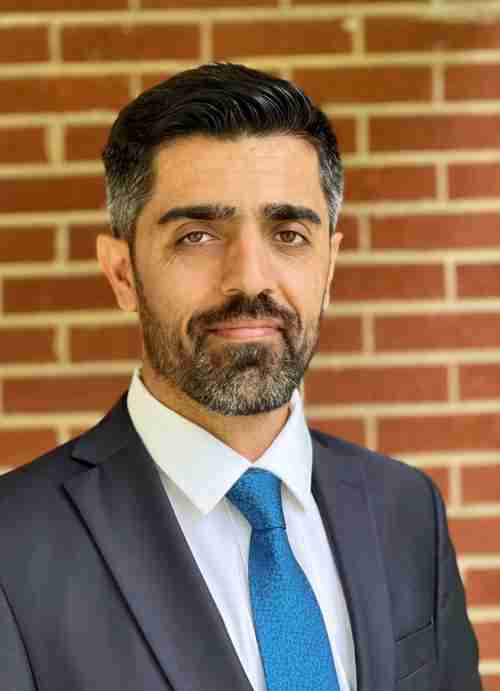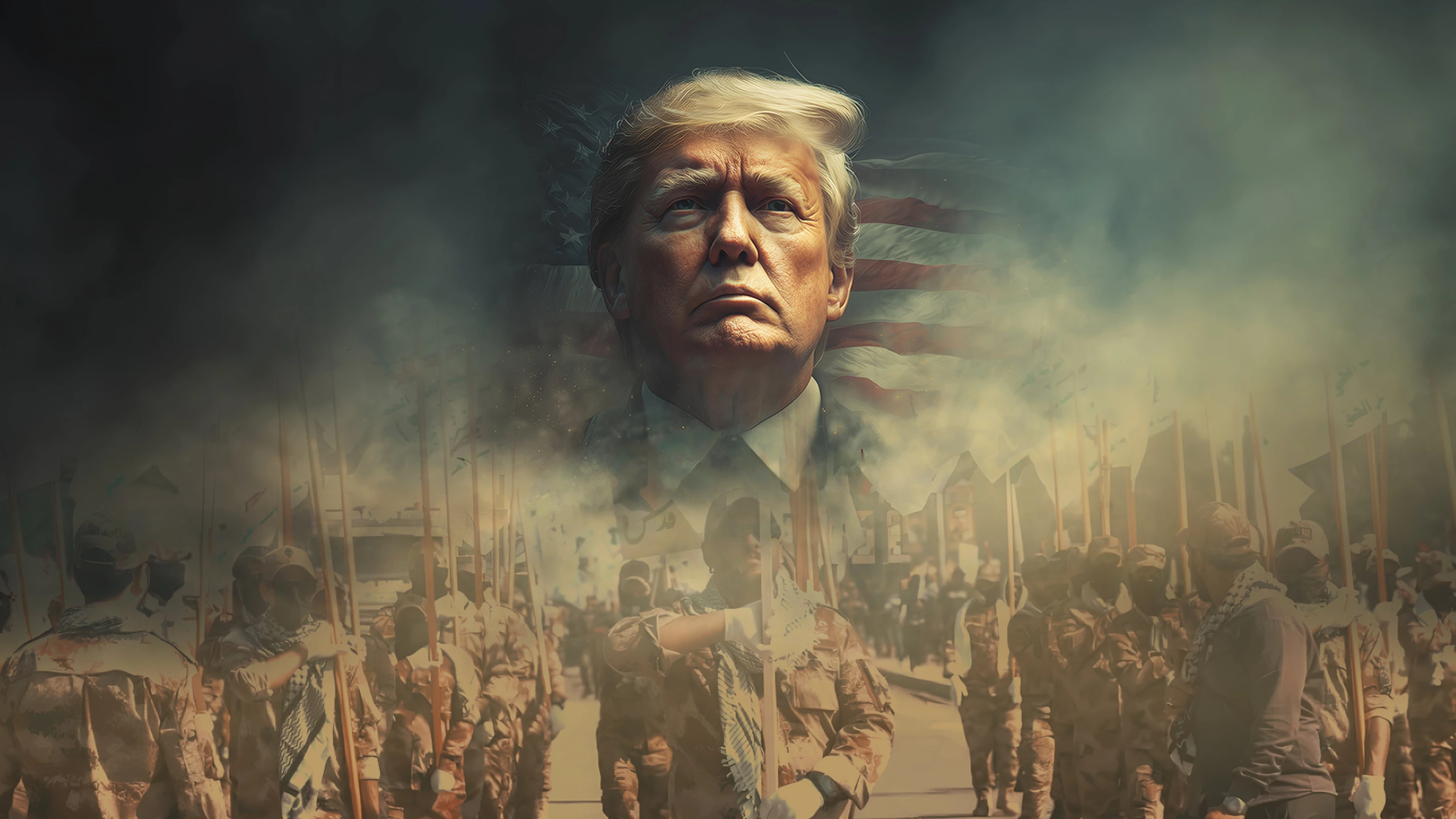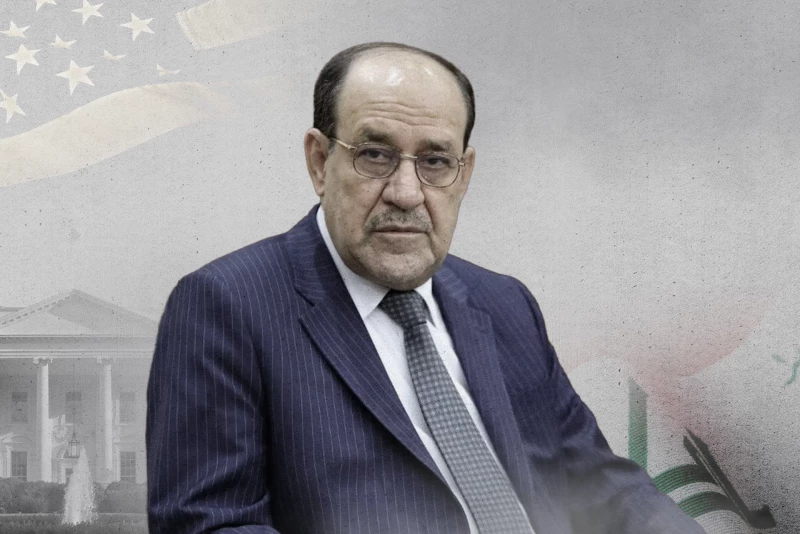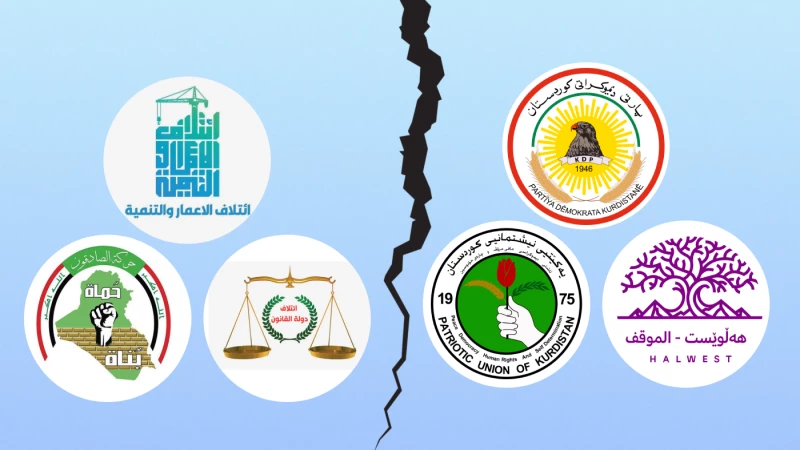The steadily brewing tension between Iraq and the United States over the Popular Mobilization Forces (PMF)—a conglomeration of mostly pro-Iran Shiite groups—appears to be heading toward an inevitable moment of reckoning. The catalyst came from US Secretary of State Marco Rubio, who, during a phone call with Iraqi Prime Minister Mohammed Shia’ al-Sudani on October 21, called for “disarming Iran-backed militias” and stressed the “urgency” of doing so. It was the first time a high-level US official issued such a direct and ambitious demand of Baghdad on this issue.
The demand followed US opposition to a recent draft law in Iraq’s parliament that would have granted the PMF greater autonomy and institutional authority. That bill was ultimately withdrawn because as the current Parliament Speaker Mahmoud al-Mashhadani, a Sunni Arab, revealed in a recent TV interview that Washington had threatened to launch military strikes against PMF groups and impose a crippling array of multifaceted sanctions on Iraq. However, as he noted, the existing 2016 law remains good enough for the PMF, which still enjoys legal recognition as a pillar of Iraq’s security establishment, receives generous state funding, and controls vast networks of economic activity.
The US position on the PMF has fluctuated over time. During the war against the Islamic State (ISIS), Washington and the PMF occasionally found themselves on the same side—indirectly coordinated through Iraq’s formal military. US-supplied weapons even ended up in PMF hands, a fact that became embarrassingly evident during the 2017 campaign against Kurds after their unsuccessful independence bid, when Abrams tanks appeared in the possession of PMF units.
At the time, Washington tolerated the PMF out of necessity. Aside from the Counter-Terrorism Service, the rest of Iraq’s military struggled to confront ISIS. The PMF, by contrast, enjoyed ideological coherence and the resolve to fight on the battlefield with dedication. From 2017 onward, however, the US opposition hardened, increasingly viewing the PMF as an Iranian instrument undermining Iraqi sovereignty. Still, until now, Washington’s intentions were open to interpretation. Rubio’s call for “disarming” these groups removes that ambiguity—and places Sudani’s government squarely between a rock and a hard place.
Yet what exactly does “disarming” mean, and who would enforce it? Suppose a future government—perhaps after the November elections—actually decided to comply with the US demand. Would Baghdad reclaim weapons it had itself distributed to these forces over the past decade? And what if the PMF refused? Any attempt to forcibly disarm these groups would almost certainly ignite a civil war across Iraq’s Shiite heartland, stretching from Basra to Baghdad. US military intervention to assist such an effort is unlikely; there is no appetite in Washington for another Iraqi entanglement. At most, the US could conduct limited airstrikes. But would such measures decisively alter realities on the ground?
The second and equally thorny question is: who exactly counts as “Iran-backed militias”? Is the US referring to the factions directly responsible for attacks on American forces and interests—those that operate under fake names to mask their identity but are widely believed to be groups such as Kataib Hezbollah, Harakat al-Nujaba and others? If so, does Washington expect these groups to be singled out or for the entire PMF structure to be dismantled?
The PMF exists today under a 2016 law passed by Iraq’s parliament granting it official status as part of the security apparatus. It is extremely unlikely that parliament could agree on new legislation to dissolve or disarm it. The cabinet cannot do much either, since Shiite ministers dominate it. In theory, under tremendous pressure, the Federal Supreme Court could do so by challenging the constitutionality of the 2016 law that formalized the PMF, given that Article 9 of the Iraqi Constitution stipulates that “the formation of militias outside the framework of the armed forces is prohibited.” The PMF did indeed originate as a militia in 2014, following a decree (fatwa) by Grand Ayatollah Ali Sistani, the top Shiite religious authority in Iraq, to defend against the existential threat posed to the country and its Shiite community by ISIS. However, the PMF is now part of the Iraqis state’s defense architecture, and with most of the Court’s justices being Shiites, such a move remains highly unlikely.
The most the US can realistically hope for is to pressure Baghdad into gradually integrating PMF fighters into existing state institutions: the army, the federal and local police, or even civil agencies like firefighting and emergency response. Washington would likely resist their absorption into elite bodies such as the Counter-Terrorism Service, with which US forces maintain close coordination. This “integration” could be presented as a dissolution of the PMF’s organizational structure—effectively a form of disarmament without open confrontation.
But anyone familiar with Iraq’s political landscape knows how implausible this is. The PMF has become the guarantor of the post-2003 Shiite-dominated order. The Shiite ruling class views it as essential to preserving both their community’s security and their political dominance. Only in extraordinary circumstances—such as the collapse or extreme weakening of Iran’s regime, or the imminent threat of war with the US—might Baghdad’s Shiite leadership consider dismantling it.
Moving forward, a more likely US approach might involve a mix of measures we have already seen: expanding economic sanctions on PMF-linked figures and businesses; designating additional groups or individuals as terrorists; and, when provoked, carrying out targeted strikes against high-value PMF assets. Washington might also intensify political pressure to block PMF-aligned parties from controlling key ministries or the premiership after the November parliamentary elections. These represent the likely tools in America’s arsenal—short of a direct military showdown that neither side seems to want.
Given these realities, the PMF leadership might very well choose a temporary tactical retreat—keeping a lower profile in the next government, toning down their rhetoric, and avoiding direct provocations against the US—while waiting for the moment to reassert themselves. They have learned to play the long game, knowing that Iraq’s state institutions remain too fragmented and dependent to challenge them decisively. Time, they might believe, is on their side.
The views expressed in this article are those of the writer and do not necessarily represent the position of The New Region's editorial team



 Facebook
Facebook
 LinkedIn
LinkedIn
 Telegram
Telegram
 X
X


